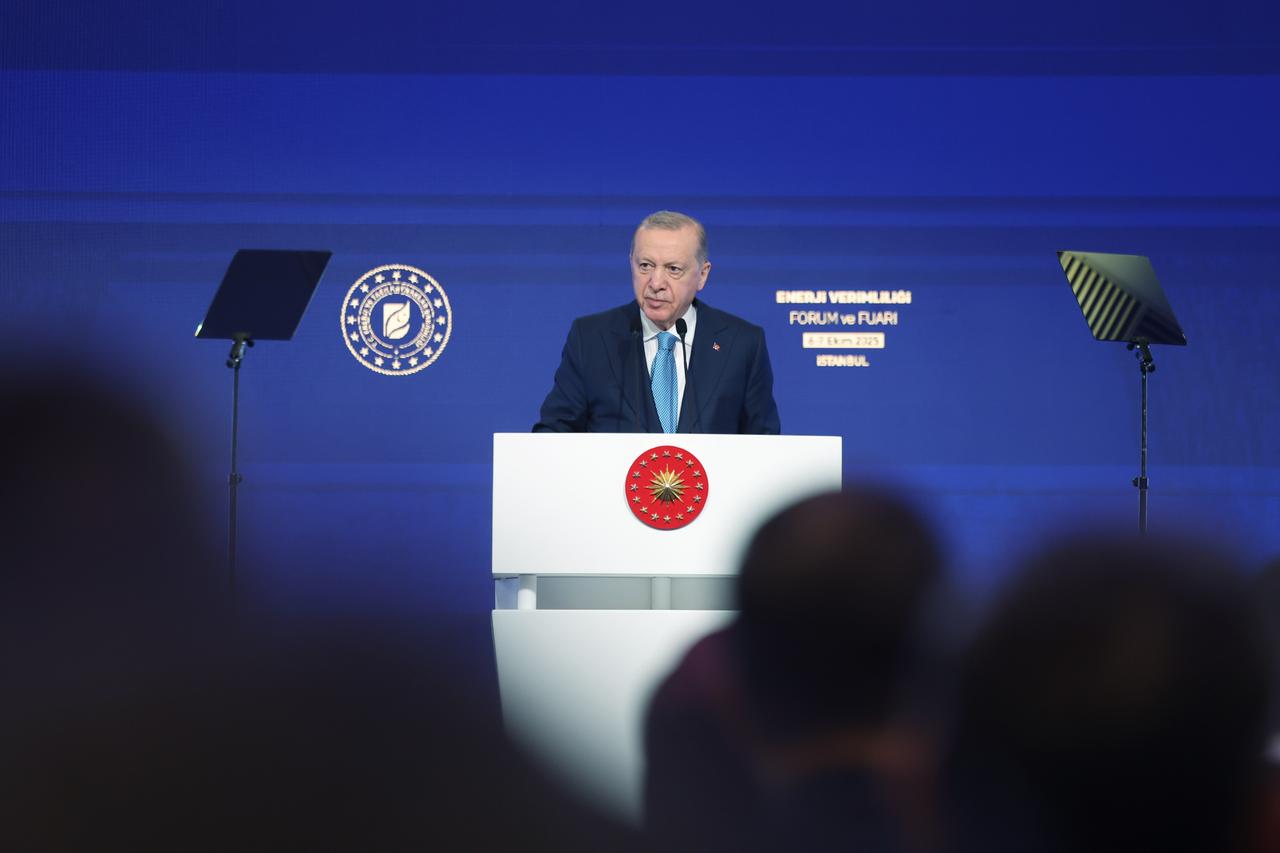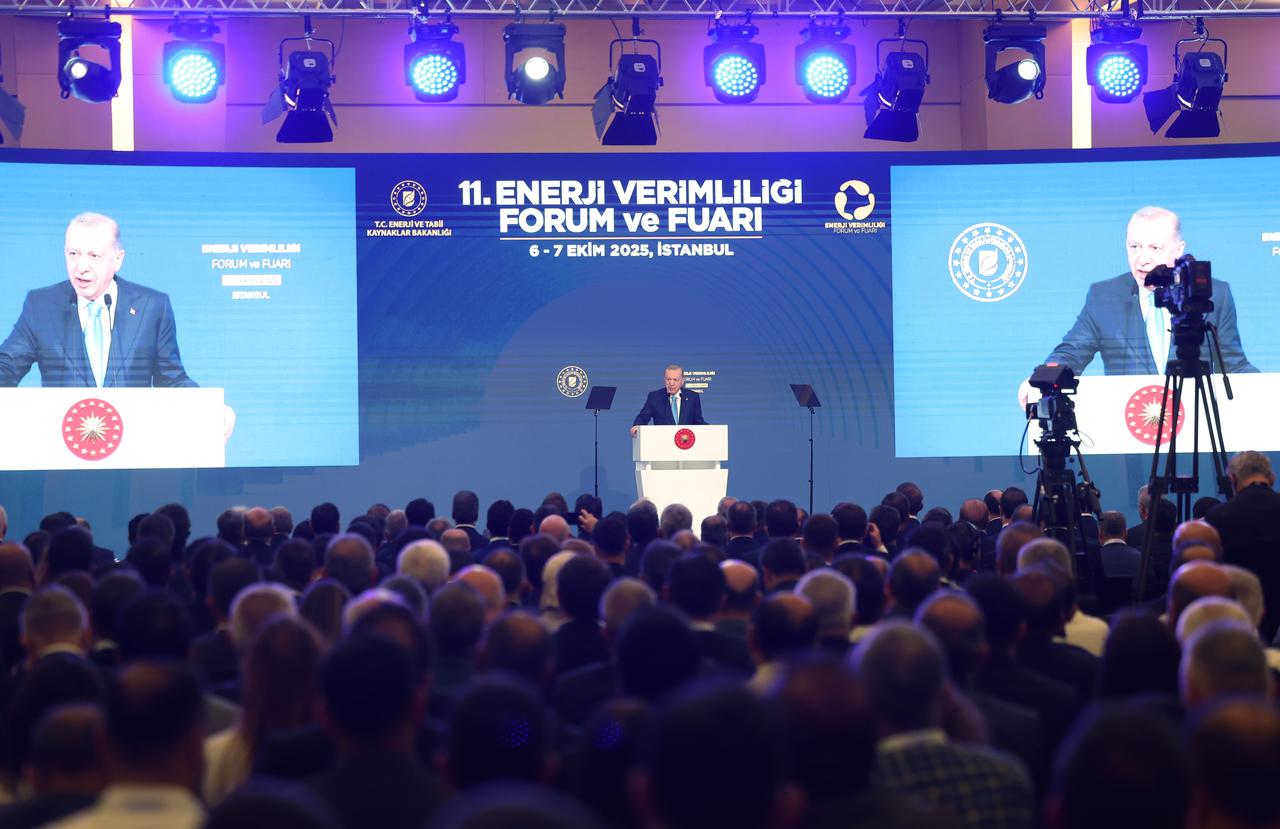
Turkish President Recep Tayyip Erdogan said Monday that Türkiye is leading in green energy investments, with renewable sources accounting for more than 60% of the country’s total installed energy capacity in 2025.
Speaking at the 11th Energy Efficiency Forum and Exhibition in Istanbul, Erdogan said the world’s energy demand is growing each year in line with population and economic expansion.
“Rising energy demand signals not only population growth and development but also increased prosperity,” Erdogan said. “Parallel to this increase in prosperity, the use of energy, especially electricity, is expanding.”
He said Türkiye paid $26 billion for energy imports in the first eight months of this year, adding that the government is “working diligently to reduce this bill.”
“Our daily oil consumption is around 1 million barrels, of which we procure 160,000 barrels from our own resources,” he noted.
Erdogan said Türkiye has made “significant progress” in energy exploration, citing major discoveries in the Black Sea and the southeastern Gabar region, but acknowledged that “there is still some distance to go.”
“We currently rank fifth in the world with four active drilling ships and two seismic-research vessels,” he said. “With the entry of new vessels into our inventory, we will rise to fourth place.”
The president said the Sakarya Gas Field in the Black Sea, where Türkiye discovered 785 billion cubic meters of natural gas five years ago, now supplies gas to 4 million households. That figure is expected to reach 8 million by 2026 and 16 million by 2028.

Erdogan emphasized that Türkiye has been implementing a diversification strategy since the 1990s to reduce foreign dependency.
“Purchasing natural gas from international markets is nothing like buying soda from a corner store,” he said. “Relying on a single country, a single source, or a single pipeline poses serious risks. Our European friends experienced this firsthand during the early months of the Russia-Ukraine war.”
He credited Türkiye’s energy diversification policies—particularly the TurkStream natural gas pipeline—for preventing supply disruptions during the war.
“In 2003, we imported natural gas from only five countries. Today, BOTAS conducts import and export operations with 34 countries,” Erdogan said, adding that gas flow from Turkmenistan began in March, totaling 465 million cubic meters so far.
Erdogan said Türkiye plans to soon deliver the first electricity from the Akkuyu Nuclear Power Plant, the country’s first such facility, currently under construction in Mersin province.
“Globally, there are 416 active nuclear reactors in 31 countries, producing about 9% of the world’s electricity. Construction continues on 63 more reactors in 15 countries, including Türkiye,” he said.
He added that Türkiye is pursuing additional nuclear projects and recently signed a Strategic Civil Nuclear Cooperation Memorandum of Understanding with the United States to collaborate on peaceful nuclear energy and new technologies such as small modular reactors.
Turning to the broader economy, Erdogan said the government’s medium-term program targets an increase in Türkiye’s gross domestic product to $1.9 trillion and per capita income to $21,000 by 2028.
“We aim to boost exports to $300 billion and tourism revenues to over $70 billion,” he said. “Our population is expected to exceed 88 million by 2030 and reach 94 million by 2050. We all know what this means in terms of energy demand and consumption.”
Erdogan reaffirmed Türkiye’s commitment to achieving full energy independence: “As in all other areas, we will continue to work tirelessly until we reach our goal of a fully energy-independent Türkiye.”